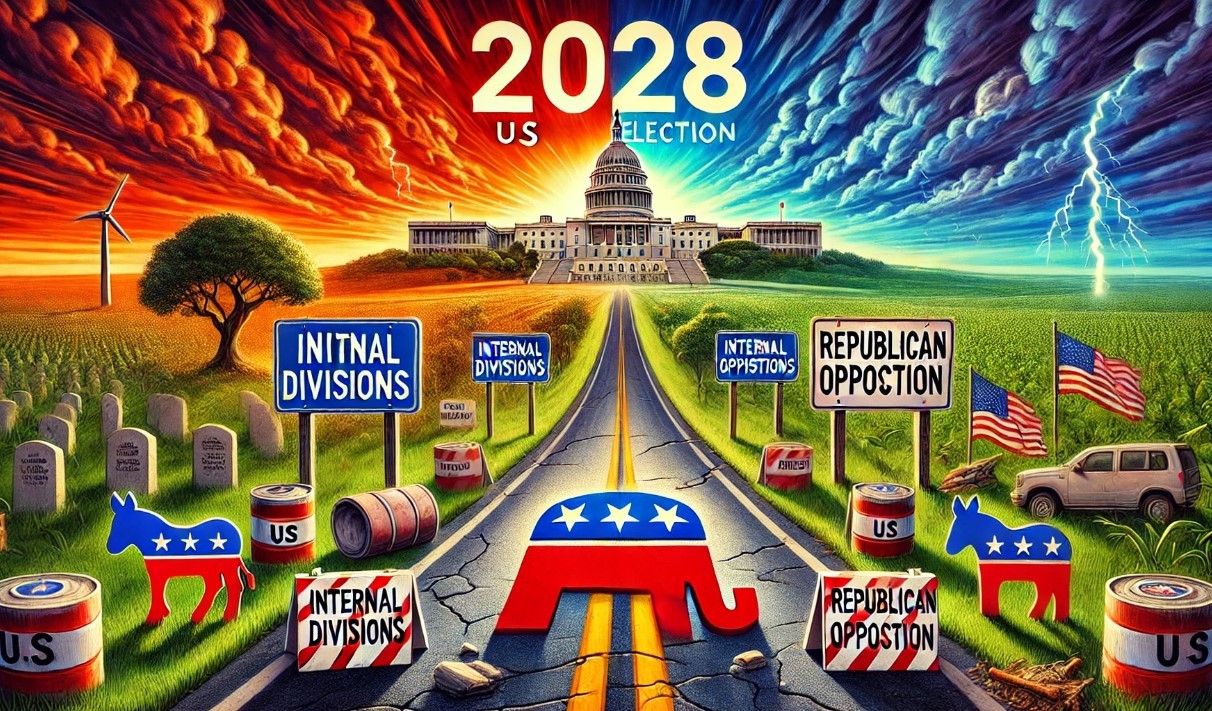What is the DOGE, and Who Will Lead It?
To lead this innovative initiative, Trump has appointed Elon Musk, the tech billionaire and CEO of Tesla and SpaceX, and Vivek Ramaswamy, a conservative activist and entrepreneur. The announcement has sparked widespread attention, not only for the agency’s ambitious mission but also for its name—an acronym that references the popular internet meme and cryptocurrency, Dogecoin, associated with Musk.
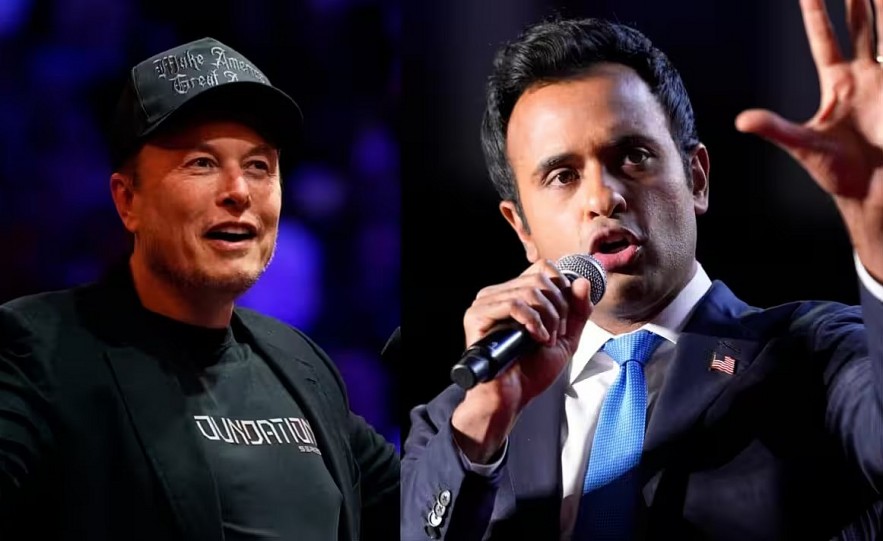 |
| Donald Trump appoints Elon Musk and Vivek Ramaswamy to US efficiency department |
The Vision Behind DOGE
The Department of Government Efficiency is designed to address long-standing criticisms of bloated federal agencies and outdated bureaucratic systems. In a statement posted to social media, Trump said, “We are creating DOGE to dismantle government bureaucracy, streamline processes, and put America first in innovation and efficiency.”
The new agency will have sweeping oversight of federal spending, regulatory frameworks, and operational efficiency across all government departments. Its goals include:
• Cutting Waste: Identifying and eliminating redundant programs and excessive spending.
• Streamlining Processes: Implementing modern technologies to improve government operations.
• Reducing Regulations: Simplifying compliance requirements for businesses and individuals.
• Promoting Transparency: Ensuring public accountability in how government funds are allocated and used.
Why DOGE?
The name “DOGE” reflects Trump’s embrace of modern, meme-driven culture, and his willingness to connect with younger generations. By referencing the cryptocurrency and meme popularized by Elon Musk, the administration signals its intention to be both innovative and unconventional.
While some critics have dismissed the acronym as a publicity stunt, Trump’s supporters argue that it underscores the administration’s commitment to bringing fresh ideas and modern perspectives to government.
Meet the Leaders: Elon Musk and Vivek Ramaswamy
Elon Musk: Innovator-in-Chief
Elon Musk, the billionaire entrepreneur behind companies like Tesla, SpaceX, Neuralink, and The Boring Company, is no stranger to disruptive innovation. Over the years, Musk has revolutionized industries from electric vehicles to space exploration, earning a reputation as a forward-thinking leader unafraid to tackle complex challenges.
Trump’s decision to appoint Musk as the head of DOGE gives the agency a powerful advocate for efficiency and modernization. Musk’s track record of solving problems with innovative solutions could bring transformative changes to government operations.
In his first public remarks about the role, Musk said, “The government is like a giant machine. We need to overhaul it, modernize it, and make it work smarter. This is about taking the best ideas from the private sector and applying them to the public sector.”
As the primary leader of DOGE, Musk will oversee:
• The integration of cutting-edge technologies into federal systems.
• The elimination of redundant programs and agencies.
• Strategies for reducing regulatory burdens on businesses and individuals.
Musk’s advocacy for artificial intelligence, renewable energy, and decentralized systems may also shape the department’s approach, potentially making government operations more transparent and efficient.
Learn more: Could Elon Musk Have an Official Role in Trump’s 2.0 Cabinet?
Vivek Ramaswamy: The Efficiency Enforcer
Joining Musk is Vivek Ramaswamy, a conservative entrepreneur, biotech innovator, and author of Woke, Inc. Ramaswamy has been a vocal critic of government overreach and corporate “wokeism,” advocating for a return to free-market principles and reduced regulation.
Ramaswamy’s experience in the private sector, particularly in biotech, gives him a unique perspective on how to improve government efficiency. As co-leader of DOGE, Ramaswamy will likely focus on identifying inefficiencies in regulatory frameworks and fostering partnerships between government and private enterprises.
In his statement, Ramaswamy said, “This department is about unleashing America’s full potential by removing barriers to growth. It’s time to make government work for the people, not the other way around.”
Ramaswamy’s role will include:
• Reviewing and reforming regulatory processes.
• Advocating for reduced federal intervention in the economy.
• Ensuring that taxpayer dollars are spent effectively and transparently.
Together, Musk and Ramaswamy bring a mix of innovation, entrepreneurial spirit, and conservative ideology to DOGE’s leadership, creating a dynamic team poised to tackle inefficiency in government.
Learn more: Who is Vivek Ramaswamy - Top Contender for Secretary of Commerce
The Challenges Ahead
While the mission of DOGE is ambitious, the department faces significant challenges. Critics argue that reducing bureaucracy and regulations is easier said than done, particularly given the entrenched interests and complexities of federal agencies.
Key Challenges Include:
• Resistance from Federal Agencies: Many departments may push back against budget cuts, program eliminations, or structural changes.
• Balancing Innovation with Accountability: Implementing cutting-edge solutions must be done carefully to avoid risks associated with untested technologies.
• Political Opposition: Critics from both sides of the aisle may question the practicality of such sweeping changes, particularly those affecting regulatory protections.
• Public Expectations: With high-profile leaders like Musk and Ramaswamy at the helm, there will be intense scrutiny of DOGE’s effectiveness and outcomes.
Despite these challenges, Trump’s supporters believe that DOGE could mark a turning point in federal governance, ushering in an era of efficiency and accountability.
Reactions to DOGE
The announcement of DOGE has sparked mixed reactions:
• Supporters: Trump’s base has enthusiastically embraced the idea, praising Musk and Ramaswamy as the right leaders to disrupt inefficient systems and bring private-sector innovation to government.
• Critics: Opponents have labeled the agency as a “vanity project” and questioned the feasibility of achieving its ambitious goals. Some have also expressed concerns about potential conflicts of interest, particularly given Musk’s involvement in industries regulated by the government.
Social Media Buzz
The acronym DOGE, with its ties to the popular Dogecoin meme, has also generated widespread attention online. Memes, hashtags, and tweets about the department have gone viral, with some applauding the playful branding and others dismissing it as unserious.
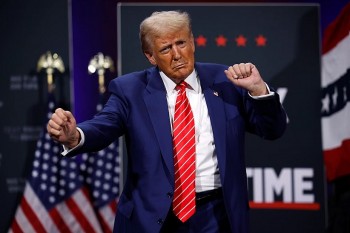 Trump’s New Policies and Their Wide-Ranging Impact Trump’s New Policies and Their Wide-Ranging Impact |
What’s Next for DOGE?
With Musk and Ramaswamy preparing to assume their leadership roles, the next steps for DOGE will likely include:
• Establishing the department’s organizational structure and priorities.
• Conducting an initial review of federal agencies to identify inefficiencies.
• Developing partnerships with private-sector leaders to drive innovation.
The department’s success will depend on its ability to deliver tangible results, from reducing wasteful spending to simplifying regulations. As the first of its kind, DOGE could set a precedent for how government agencies operate in the 21st century.
Conclusion
The creation of the Department of Government Efficiency marks a bold step toward modernizing federal governance. By appointing Elon Musk and Vivek Ramaswamy as its leaders, Trump has signaled a commitment to innovation, efficiency, and reducing government overreach.
While the road ahead is fraught with challenges, DOGE has the potential to reshape how the government operates, making it leaner, smarter, and more accountable to the American people. Whether it achieves its lofty goals remains to be seen, but one thing is certain: DOGE is already making waves in Washington and beyond.
Frequently Asked Questions (FAQs)
1. What is the purpose of the Department of Government Efficiency (DOGE)?
The Department of Government Efficiency (DOGE) is a newly formed federal agency tasked with modernizing government operations, reducing wasteful spending, and eliminating unnecessary bureaucracy. Its core mission is to streamline processes, slash excessive regulations, and promote transparency in federal spending, fulfilling President-elect Donald Trump’s campaign pledge to “dismantle government bureaucracy.”
2. Why is the agency named DOGE?
The acronym "DOGE" stands for the Department of Government Efficiency, but its name is also a playful reference to the Dogecoin cryptocurrency and internet meme popularized by Elon Musk. The name reflects the department’s innovative approach and willingness to embrace modern culture while addressing serious governance issues. This branding is part of Trump’s broader strategy to connect with younger, tech-savvy voters and highlight Musk’s role in the initiative.
3. Who will lead DOGE?
The agency will be co-led by Elon Musk, the billionaire CEO of Tesla and SpaceX, and Vivek Ramaswamy, a conservative entrepreneur and biotech innovator. Musk will focus on integrating cutting-edge technologies and identifying inefficiencies in federal spending, while Ramaswamy will lead efforts to reform regulatory frameworks and ensure accountability in government operations. Together, they bring a mix of entrepreneurial vision and free-market principles to the department.
4. What are Elon Musk’s priorities as a leader of DOGE?
Elon Musk is expected to prioritize:
-
Implementing Technology: Introducing advanced technologies such as artificial intelligence and automation to modernize government operations.
-
Reducing Waste: Identifying and eliminating redundancies in federal programs to save taxpayer money.
-
Improving Efficiency: Streamlining bureaucratic processes to make government services faster and more accessible.
-
Promoting Transparency: Making government spending more transparent through innovative data-sharing solutions.
5. What is Vivek Ramaswamy’s role in DOGE?
Vivek Ramaswamy’s focus will be on:
-
Reforming Regulations: Reviewing and simplifying federal regulations to reduce burdens on businesses and individuals.
-
Advancing Free-Market Principles: Ensuring that government policies support economic growth and innovation.
-
Strengthening Accountability: Implementing systems to track and audit federal spending, ensuring that taxpayer dollars are used efficiently.
-
Fostering Public-Private Partnerships: Creating collaborations between government and private enterprises to leverage expertise and resources.
6. How does DOGE plan to measure its success?
Success for DOGE will be evaluated through several key metrics:
-
Reduction in Government Spending: Clear benchmarks for cutting waste and saving taxpayer money.
-
Simplified Regulatory Frameworks: Streamlined rules and reduced compliance costs for businesses.
-
Improved Public Access to Data: Enhanced transparency tools, such as real-time tracking of government expenditures.
-
Increased Efficiency: Shorter processing times for federal services and reduced administrative overhead.
7. What challenges might DOGE face?
While the vision for DOGE is ambitious, the department is likely to encounter several obstacles:
-
Resistance from Federal Agencies: Long-standing institutions may resist changes that threaten their traditional processes and budgets.
-
Political Pushback: Critics from both parties may question the feasibility of DOGE’s goals, particularly in areas like deregulation and spending cuts.
-
Balancing Innovation and Security: Implementing cutting-edge technologies while ensuring data security and system reliability will be a challenge.
-
High Expectations: With high-profile leaders like Musk and Ramaswamy at the helm, public and political scrutiny will be intense.
8. How will DOGE impact ordinary Americans?
If successful, DOGE could lead to:
-
Lower Taxes: By reducing waste and inefficiency, the government may pass savings on to taxpayers.
-
Improved Government Services: Faster and more reliable access to federal services for individuals and businesses.
-
Reduced Regulatory Burdens: Simplified rules that make it easier for businesses to operate and grow.
-
Greater Transparency: Increased accountability in how government funds are allocated and spent.
9. Is this the first time such an initiative has been proposed?
Efforts to reform government operations are not new, but DOGE represents one of the most ambitious attempts to overhaul federal bureaucracy. By bringing in leaders from the private sector, such as Elon Musk and Vivek Ramaswamy, DOGE signals a departure from traditional approaches to governance and emphasizes innovation and efficiency.
10. What’s next for DOGE?
DOGE’s immediate priorities will include:
-
Establishing its organizational structure and staffing key positions.
-
Conducting an in-depth review of all federal agencies to identify inefficiencies and opportunities for reform.
-
Rolling out pilot programs to test new technologies and streamlined processes.
-
Collaborating with Congress to secure funding and bipartisan support for its initiatives.
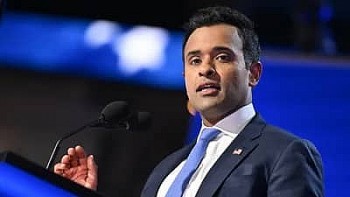 Who is Vivek Ramaswamy - Top Contender for Secretary of Commerce Who is Vivek Ramaswamy - Top Contender for Secretary of Commerce We explores Vivek Ramaswamy's journey from biotech executive to a rising star in conservative politics and Top Contender for Secretary of Commerce (Trump New Cabinet). |
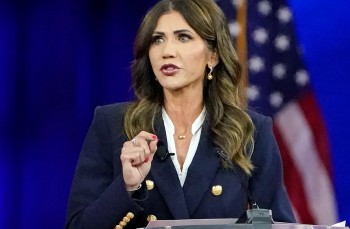 Who is Kristi Noem (Homeland Security Secretary): Personal Life, Career, and Net Worth Who is Kristi Noem (Homeland Security Secretary): Personal Life, Career, and Net Worth This article explores South Dakota Gov. Kristi Noem's personal life, career, achievements, and her potential role in Trump’s new Cabinet as Homeland Security Secretary. |
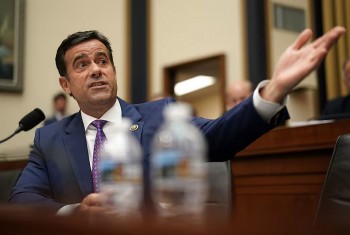 Who is John Ratcliffe (CIA Director): Biography, Personal Life, Career, and Net Worth Who is John Ratcliffe (CIA Director): Biography, Personal Life, Career, and Net Worth Let's examine the political career, personal life, wife, kids, and other details of well-known politician John Ratcliffe, who is most likely to be a member ... |
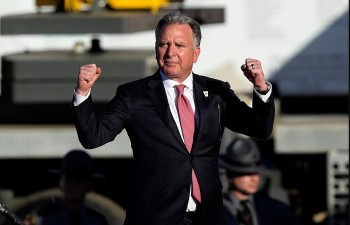 Who is Steven Witkoff, Middle East Envoy: Bio, Perosnal Life, Career, Net Worth Who is Steven Witkoff, Middle East Envoy: Bio, Perosnal Life, Career, Net Worth Steven Witkoff, a prominent real estate developer and philanthropist, has reportedly been tapped as the Middle East Envoy in Donald Trump’s prospective administration. Known for ... |
 Who is Pete Hegseth, Secretary of Defense: Army Time, Personal Life, Career, and Net Worth Who is Pete Hegseth, Secretary of Defense: Army Time, Personal Life, Career, and Net Worth Pete Hegseth, a decorated military veteran, has emerged as a top contender for Secretary of Defense in Donald Trump’s prospective administration. Check his biography, personal ... |




